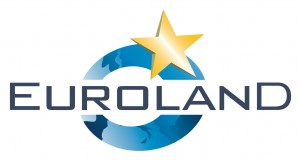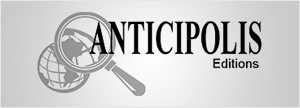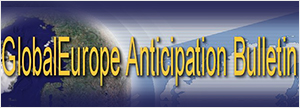{ {{Organised in partnership with the Foreign & Commonwealth Office}} }
[Seminar’s executive summary->http://www.europe2020.org/spip/spip.php?article202&lang=en]{{ {{{Concept}}} }}
Geographical and cultural distance are two fundamental parameters which have always characterised the relations between Europe and Asia. Indeed the road is long leading from one to the other, though both are birth places of major civilisations, and though both are the product of a long history and of a wide cultural diversity.
Modern history has brought these two regions closer, first through trade, then through colonisation. Nowadays, economic exchanges are certainly the most powerful link upon which the two areas attempt to strengthen political and cultural dialogues.
At either end of the same continental bloc – Eurasia, separated by an immense state – Russia, Europe and Asia somehow reflect one another. Asia is an extraordinarily diverse continent. It is both a continent trying to build a regional unity – ASEAN – on bases similar to the EU, and a region housing three of the most important global powers in their own right – China, India and Japan.
Asia has become in the last decade the case-study of economic development and a prominent component of the globalised world. It is now an essential region of global geo-politics, namely because, together with the Middle-East, it is one of the few areas worldwide where regional conflicts could erupt.
Collectively, Asia is a natural partner of European leaders and the business community in the international arena, which as both a market and a production base, helps to guarantee the competitiveness of European multinational companies (on both). But it might also be a source of worry for Europeans, concerned that jobs will shift from Europe to the lower-salary regions of Asia.
There are gaps in the mutual understanding between Asia and Europe. Asian diversity is not well-known by the Europeans who tend to reduce it to its three giants. By contrast, European integration is widely ignored by Asians who continue to see only one superpower Westward: the United-States. Relations between the EU and Asia are therefore mostly economic and commercial, and scattered among the various « Asian poles ».
As a result of the profound changes that have occurred in the international arena in the last three years, and at a time when the EU is attempting to build a common external policy, it is necessary to review the EU’s strategic interests in this region until 2020 and to consider the tools required for their promotion. Given Asia’s distance from Europe as well as its diversity, and considering the disparity of member-states’ interests in Asia, defining a common policy towards Asia is a real challenge for Europeans. Somehow, the real test of a common EU policy is not so much whether or not Europe has a common vision of its relations with Washington, Moscow or the Middle-East, but whether or not it is able to answer this simple question: “How would the EU react to cross-Straits conflict?”
_________
{{ {{{Programme}}} }}
{{Moderator}}: Franck Biancheri, Director of Studies and Strategy, Europe 2020
{Europe 2020 seminars are bilingual: presentations and discussions take place in English or French without translation}
9.00 – Opening session
. Mr Nigel Cox, Director Asia-Pacific, Foreign & Commonwealth Office
. Mr Franck Biancheri, Director Research & Strategy, Europe 2020
{{9.30 – Theme 1 – Asia: The main structural challenge for the EU’s regional approach to the world}}
By the size of its population, and of some of its constituent states, and due to its immense cultural diversity, Asia is a formidable challenger to the « European model » of external relations based on the emergence of integrated regions as partners. Simultaneously, the EU can envisage Asia as the only continent where models of governance are being applied to entities of 500 million citizens and more, thus confronting difficulties similar to those the EU will face in the coming decades. How does one “integrate” Asia into the “European model” of external relations? Are there some common issues as regards to governing large and diverse human groups upon which to base EU-Asia relations? How can the EU deal with a region seen as a whole while simultaneously taking into account the existence of the “regional giants” in their own rights?
Introduction by: Mr Adrian Taylor, Director, Think Tools A.G. Münich
Debate
{11.00 – Break}
{{11.15 Theme 2 – Conditions for European action to be useful for stability and security in Asia}}
Asia is among the most sensitive areas on the planet due to tensions between its great powers and to the importance of the region on the global level. Nowadays, the EU may appear as a marginal player in the Asian security game. However it cannot remain a mere spectator when its own future and that of the planet is so much at stake. How can the EU define an active policy contributing to Asia’s collective security? What could be the right methods and instruments for implementing such a policy?
Introduction by: Dr Stefan Collignon, European Institute, London School of Economics
Debate
{12.45 – Luncheon}
{{14.00 – Theme 3 – Future economic and social dimensions of the EU-Asian relationship}}
Asia’s economic importance has been increasing in the last decades. Either due to its economic and technological super-power, Japan, or to its cheap labour super-power and its immense potential market, China, or to its emerging technological operator, India, Asia is now an unavoidable market and economic partner of the EU. Simultaneously, the very significance of these relations produces in the EU some growing social effects and concerns. For many Europeans, Asia symbolises un-controlled globalisation stealing European jobs relocated in this region of the world. The EU will have to face these economic and social dilemmas in its relation with Asia. Which orientations should it follow in this field? Is the EU-Asia partnership a sufficient framework to address these issues ?
Introduction by: à Mr Max Gattein, President, Club Convergence Chine-France and Mr Jonathan Robin, Vice-President Task-Force Ipv6-European Commission, Paris
Debate
{15.30 – Break}
{{15.45 – Theme 4 – Possible partnerships between the EU and Asia in terms of global governance}}
The recent international crises have demonstrated the growing complexity of international relations and its transformations, as in the case of shifting alliances among states. Ranging from WTO negotiations to Security Council decisions, the EU sees that defining common interests with Asia will not be an easy task. Is the diversity of Asian players compatible with the EU’s regional approach? Can the EU deal with Asian countries on a case-to-case basis? or rather should the EU try to orientate Asia towards its own vision of global governance?
Introduction by: Mr Rafael Bueno, Director of East-West Dialogue, Casa Asia, Barcelona
Debate
17.30 – Closing session
H.E. Mr Edgardo B. Espiritu, Philippines Ambassador Extraordinary and Plenipotentiary to the United Kingdom, Ireland, and Iceland, Permanent Representative to the International Maritime Organisation ([Read speech->http://www.europe2020.org/spip/spip.php?article346&lang=en])
{18.00 – End of the seminar}
________
{{ {{{Participants}}} }}
<img59|center>
. Neil Barklem, Oxton Bibliotech
. Franck Biancheri, Directeur Etudes et Stratégie Europe 2020
. Marie-Hélène Caillol, Vice-Présidente Europe 2020
. Rafael Bueno, Director of East-West Dialogue, Casa Asia, Barcelona
. Stefan Collignon, European Institute, London School of Economics
. Nigel Cox, Director Asia Pacific, FCO
. Alexandra Magnolia Dias, Africa Debat, Porto
. H.E. Edgardo B. Espiritu, Phippines Ambassador Extraordinary and Plenipotentiary to the United Kingdom, Ireland, and Iceland, Permanent Representative to the International Maritime Organisation
. Max Gattein, Président, Club Convergence Chine-France
. Florian Grozea, Counsellor at the Romanian Embassy in London
. Leo Herrera-Lim, First Secretary, Embassy of Philippines in London
. Chris Holtby, Administrateur, Unité politique, Conseil de l’UE
. Vlad Ionescu, Counsellor, EU Directorate, MFA Bucharest
. Mariusz Kazana, Head of CFSP and External Relations Unit, EU Department of European Union, Ministry of Foreign Affairs, Warsaw
. Sebastian Kelbling, Regional Coordinator Asia, Steering Group Strategic Corporate Development, InWEnt – Capacity Building International, Germany
. Rachel Martinek, Asia Department, FCO
. Thirapath Mongkolnavin, First Secretary, Royal Thai Embassy in London
. Mr Moyano, First Counsellor, Embassy of Spain in London
. Aap Neljas, Estonian MFA
. Peter Nightingale, Chairman, Euro-China Business Association
. Alex Noble, The Guildford Consortium, University of Surrey
. Péter Noszkó-Horváth, Deputy Director General of the Asia and Pacific Department, Ministry of Foreign Affairs, Budapest
. Ida Olsen, 1st Secretary, Royal Danish Embassy in London
. Evangeline Ong-Jimenez, 2nd secretary, Embassy of Philippines in London
. Jaap Ora, Political Counsellor, Estonian Embassy in London
. Sunghee Park, Project Manager, Centre Asie-Europe, Paris
. Stanislav Rašcan, Head of Department for Africa, Asia, Latin America and Pacific, Ministry of Foreign Affairs of Slovenia
. Nicholas Reed, Chargé de mission Tiesweb
. Xavier Rey, Premier Secrétaire, Ambassade de France à Londres
. Daniel Ristea, Second Secretary, Embassy of Romania in London
. Jonathan Robin, Vice-Président Task-Force Ipv6-Commission européenne
. Adrian Taylor, Think-Tools GmBh, Münich
. Alvaro Trejo, Counsellor, Embassy of Spain in London
. Yolanda Valassopoulou, First Secretary, Embassy of Greece
. Inguna Viksne, 1ère secrétaire, Division Asie & Afrique, Ministère des Affaires étrangères, Riga
. Andrei Vlohov, 2ème secrétaire, Ambassade de Bulgarie à Londres
. Christoph Weingartner, Press attaché, Austrian Embassy in London


 LEAP2040 Toutes les informations et archives Europe2040
LEAP2040 Toutes les informations et archives Europe2040



